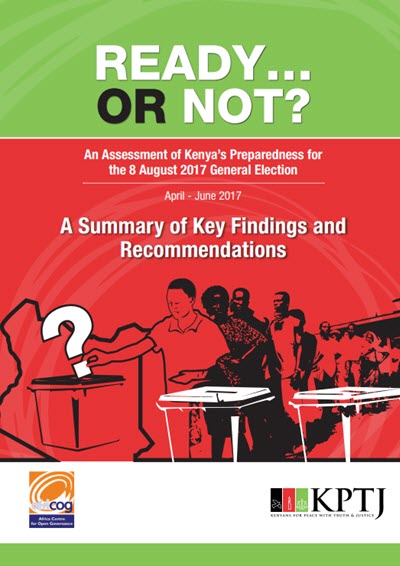Background
The general election is due to be held in a month’s time. It is therefore of extreme concern that so many important processes and issues are still hanging in the balance. It does not augur well for the credibility and peacefulness of the coming general election that key stakeholders appear to be unwilling or unable to learn from the lessons of the past. As this report details, the voters’ register is once again the source of public uncertainty; constitutional provisions on gender equality have been ignored and will no longer be applied to these elections, laying them open to challenge; procurement of ballots is tainted by the suspicion of wrongdoing and has been delayed; violence and intimidation are rife; questions around the deployment and independence of the security forces remain unanswered and yet again voters are being mobilised along ethnic and clan lines. Critically, the IEBC’s actions and omissions have not reduced public anxiety about its competence, independence and impartiality. Elections have been the main cause of widespread instability in the past; once again Kenya finds itself on a knife’s edge.
There is no such thing as a perfect election; to expect one would be unreasonable. However, in the interests of safeguarding cohesion and peace in this country, all stakeholders must urgently redouble their efforts to address shortcomings and allay public suspicion and fears of a repeat of past failures. They must pro-actively reach out to the public whose interests they are supposed to serve and inform them of plans to mitigate the identified deficiencies. This will not reduce public confidence; on the contrary, it will strengthen the perception that problems are being openly addressed and help set realistic expectations.
This second edition of the Ready or Not election preparedness report series, developed in partnership by the Africa Centre for Open Governance (AfriCOG) and Kenyans for Peace with Truth and Justice (KPTJ), focuses on an assessment of the key activities of the electoral cycle between April and June 2017 and offers an evaluation of the key vulnerabilities in voting, tallying, results announcement and electoral dispute resolution phases of the electoral process.
